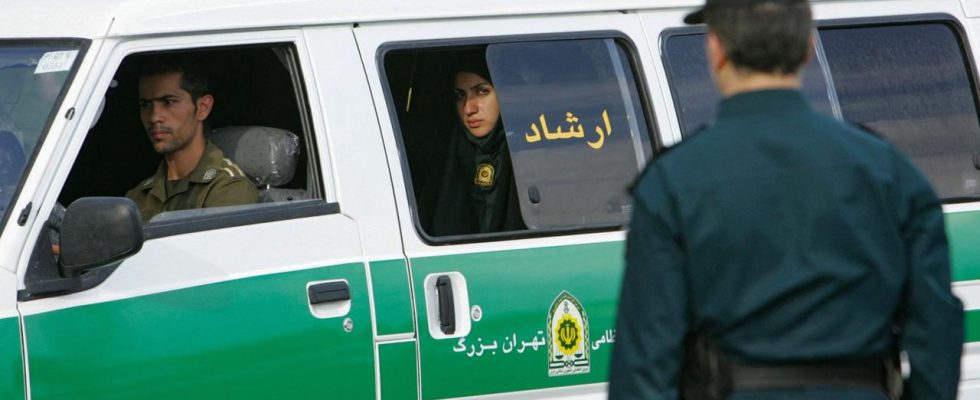The regime in Iran had driven the protest movement off the streets. Now controls are getting tougher again. This is shown by the death sentence against a rapper and the possible new headscarf law.
The Iranian regime is increasing its pressure on the protest movement in the country. This is shown by the death sentence against the Iranian rapper Toomaj Salehi. His music is dark and full of anger. In doing so, he expresses the feeling of many young Iranians. The regime knows this too. He attacks this openly in his songs and sings about its end.
But critics see last week’s death sentence against him as more than just punishment for this. It should send the signal to the young protest movement: We don’t shy away from your idols. Resistance will not be tolerated. Not even when it comes to forcing women to wear the headscarf again.
Women should wear chador
Supreme Leader Ayatollah Ali Khamenei said earlier this month: “According to Islamic jurisprudence and from a religious perspective, women must cover their entire body except the palms and face.” You shouldn’t neglect this.
So Khamenei goes even further. He wants to force the women under the chador, the long black cloth that reaches from the head to the ground.
Dangerous controls
Narges is one of the women who took to the streets after the death of Jina Mahsa Amini in September 2022, of course without a headscarf. Until recently, the mid-30-year-old was traveling around Tehran without one, for example on the way to yoga. “Then they asked me to put on the headscarf and warned me because I was traveling without one.”
In the past, it was possible to escape such situations by ignoring such requests. She then simply walked away quickly. “This time I heard the heavy footsteps behind me,” says the young woman as she sits in her office
She has blue-red-purple colored hair. The window is open. The birds are chirping outside. But the peaceful atmosphere is deceptive. Narges actually has a different name. She is nervous and doesn’t feel safe in her office in Tehran as she continues: “Suddenly there were four or five police officers there. I quickly put my scarf on.”
The policewomen wore a black chador and took photos of her. They ordered her to go to a police minibus. Narges almost wanted to do that. “Then I changed my mind and asked: ‘Why should I? Now I wear a headscarf’.”
Dreaded minibuses
She hasn’t completely lost her courage to protest yet. In this case it pays off. She briefly discussed things with the officials. They tell Narges that she shouldn’t go out without a headscarf anymore. Then she can move on.
In other cases, the moral police force women onto their minibuses. This feared symbol of the death of Jina Mahsa Amini has been back on the streets of Iran for just over two weeks. A new wave of headscarf controls is underway. The United Nations human rights office in Geneva reports that Iranian police have arrested many women and girls.
“It’s all torture”
At Café Farance in Tehran, the staff also serves women without headscarves. At least until ten days ago. Regular guest Ali says in a hidden corner that he was there when the police sealed the café: “It was the first time here in the café since the Iranian New Year in March. But it was also once or twice last year to.” The café has been around for more than 60 years. “Here was Vida Movahed standing on an electrical box with her white headscarf tied to a stick. It’s all torture,” says Ali.
The image of the young woman went around the world in 2017, her silent protest. Today – six and a half years later – women are once again getting their coffee at Farance wearing headscarves. Loose clothing, no headscarf, that was still their everyday protest for months after the regime had violently suppressed the uprising on the streets and smothered them with executions. But the regime also wants to take away what little freedom they have, critics say. It’s about putting the young generation in their place, teaching them fear, breaking them.
New headscarf law: tougher penalties
One instrument is the new headscarf law. After a long dispute, it could soon come into force. The women then face even harsher punishments: for example, up to 15 years in prison, thousands of euros in fines, and a years-long professional ban for celebrities.
An Iranian human rights organization reports a new wave of executions, allegedly for drug-related offenses. The regime is apparently taking advantage of the fact that the world is currently focused on the war in Gaza and Iran’s conflict with Israel.
Rapper Toomaj Salehi sings about how hair blowing in the wind is a crime in Iran. His lawyer wants to challenge the death sentence and thus save Salehi’s life.

